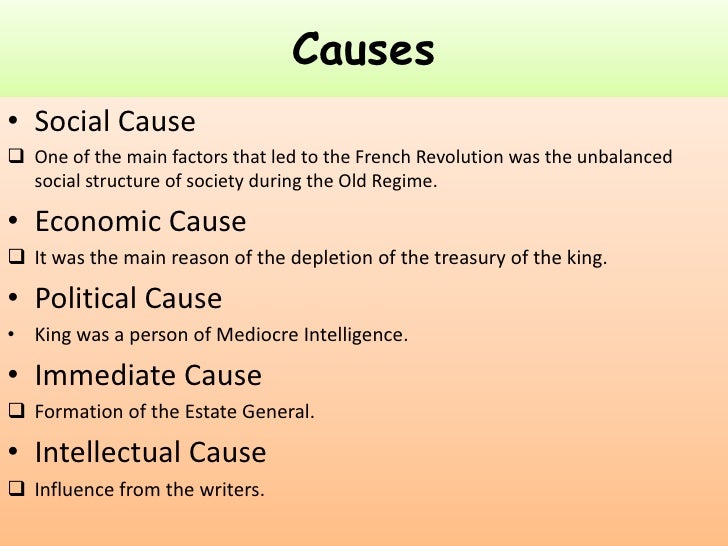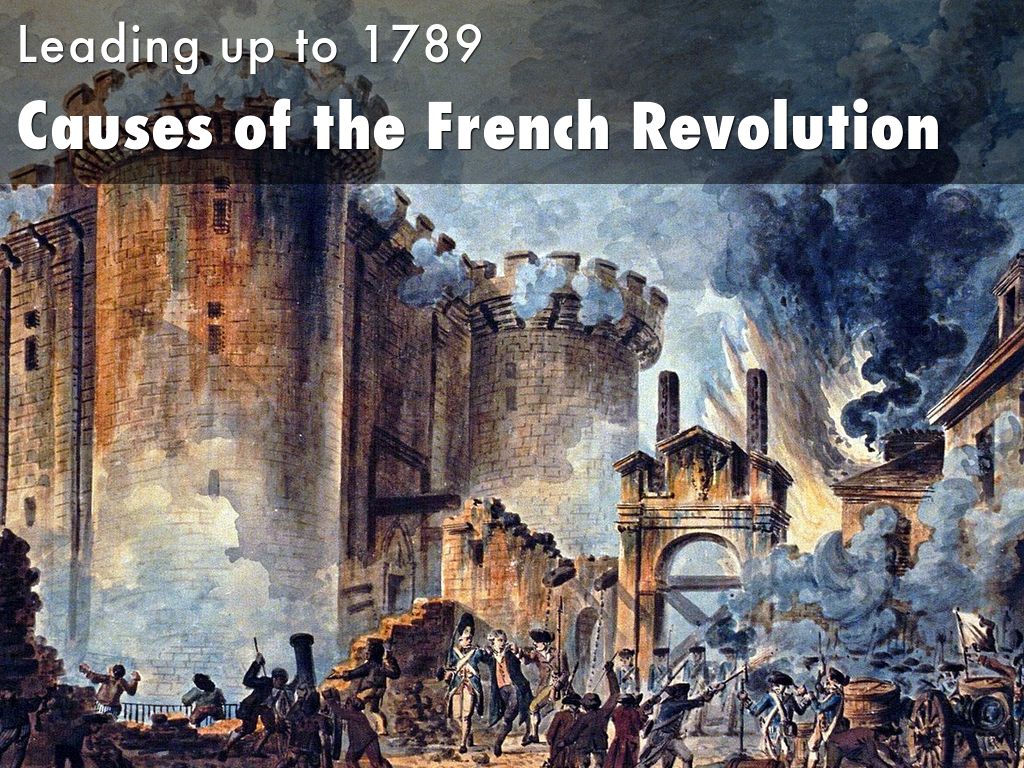French Revolution Causes
Contents. The French Revolution was a watershed event in modern European history that began in 1789 and ended in the late 1790s with the ascent of Napoleon Bonaparte. During this period, French citizens razed and redesigned their country’s political landscape, uprooting centuries-old institutions such as absolute monarchy and the feudal system. The upheaval was caused by widespread discontent with the French monarchy and the poor economic policies of King Louis XVI, who met his death by guillotine, as did his wife Marie Antoinette. Although it failed to achieve all of its goals and at times degenerated into a chaotic bloodbath, the French Revolution played a critical role in shaping modern nations by showing the world the power inherent in the will of the people. A Monarchy in Crisis As the 18th century drew to a close, France’s costly involvement in the, and extravagant spending by King and his predecessor, had left the country on the brink of bankruptcy.
The French Revolution resulted from two state crises which emerged during the 1750s–80s, one constitutional and one financial, with the latter providing a 'tipping point' in 1788/9, when desperate action by government ministers backfired and unleashed a revolution against the '.' In addition to these, there was the growth of the bourgeoisie, a social order whose new wealth, power, and opinions undermined the older social system of France. The bourgeoisie were, in general, highly critical of the pre-revolutionary regime and acted to change it, although the exact role they played is still hotly debated among historians. From the 1750s, it became increasingly clear to many Frenchmen that the constitution of France, based on an absolutist style of monarchy, was no longer working.
This was partly due to failures in government, be they the squabbling instability of the king's ministers or embarrassing defeats in wars, somewhat a result of new enlightenment thinking, which increasingly undermined despotic monarchs, and partly due to the bourgeoisie seeking a voice in the administration. The ideas of 'public opinion,' 'nation,' and 'citizen' emerged and grew, along with a sense that the state's authority had to be defined and legitimized in a new, broader framework which took more notice of the people instead of simply reflecting the monarch's whims.
People increasingly mentioned, a three-chambered assembly which hadn't met since the seventeenth century, as a possible solution that would allow the people—or more of them, at least—to work with the monarch. There wasn't much demand to replace the monarch, as would happen in the revolution, but a desire to bring monarch and people into a closer orbit which gave the latter more say. The idea of a government—and king—operating with a series of constitutional checks and balances had grown to be vitally important in France, and it was the existing 13 parlements which were considered—or at least considered themselves—the vital check on the king. However, in 1771, the parlement of Paris refused to cooperate with the nation's Chancellor Maupeou, and he responded by exiling the parlement, remodeling the system, abolishing the connected venal offices and creating a replacement disposed towards his wishes. The provincial parlements responded angrily and met with the same fate. A country which had wanted more checks on the king suddenly found that those they had were disappearing. The political situation seemed to be going backwards.


Despite a campaign designed to win over the public, Maupeou never gained national support for his changes and they were cancelled three years later when the new king, responded to angry complaints by reversing all the changes. Unfortunately, the damage had been done: the parlements had been clearly shown as weak and subject to the king's wishes, not the invulnerable moderating element they wished to be. But what, thinkers in France asked, would act as a check on the king?
The Estates General was a favorite answer. But the Estates General hadn't met for a long time, and the details were only sketchily remembered. The financial crisis which left the door open for revolution began during the American War of Independence, when France spent over a billion livres, the equivalent of the state's entire income for a year. Almost all the money had been obtained from loans, and the modern world has seen what overstretched loans can do to an economy. The problems were initially managed by Jacques Necker, a French Protestant banker and the only non-noble in the government. His cunning publicity and accounting—his public balance sheet, the Compte rendu au roi, made the accounts look healthy—masked the scale of the problem from the French public, but by the chancellorship of Calonne, the state was looking for new ways to tax and meet their loan payments. Calonne came up with a package of changes which, had they been accepted, would have been the most sweeping reforms in the French crown's history.
French Revolution Causes Essay
They included abolishing lots of taxes and replacing them with a land tax to be paid by everyone, including the previously exempt nobles. Calonne had seriously miscalculated and, far from weakly accepting the proposed changes, the 144 members of the Assembly refused to sanction them.
Many were against paying new tax, many had reasons to dislike Calonne, and many genuinely believed the reason they gave for refusing: no new tax should be imposed without the king first consulting the nation and, as they were unelected, they couldn't speak for the nation. Discussions proved fruitless and, eventually, Calonne was replaced with Brienne, who tried again before dismissing the Assembly in May. Brienne then tried to pass his own version of Calonne's changes through the parlement of Paris, but they refused, again citing the Estates General as the only body which could accept new taxes. Brienne exiled them to Troyes before working on a compromise, proposing that the Estates General would meet in 1797; he even began a consultation to work out how it should be formed and run.
But for all the good will earned, more was lost as the king and his government began forcing laws through using the arbitrary practice of 'lit de justice.' The king is even recorded as responding to complaints by saying 'it's legal because I wish it' (Doyle, The, 2002, p.

80), further fueling worries over the constitution. The growing financial crises reached its climax in 1788 as the disrupted state machinery, caught between changes of system, couldn't bring in the required sums, a situation exacerbated as bad weather ruined the harvest. The treasury was empty and no-one was willing to accept more loans or changes. Brienne tried to create support by bringing the date of the Estates General forward to 1789, but it didn't work and the treasury had to suspend all payments.
France was bankrupt. One of Brienne's last actions before resigning was persuading King Louis XVI to recall Necker, whose return was greeted with jubilation by the general public.
French Revolution Causes Dbq
Pioneer dvr s606 drivers for mac. He recalled the Paris parlement and made it clear he was just tiding the nation over until the Estates General met.